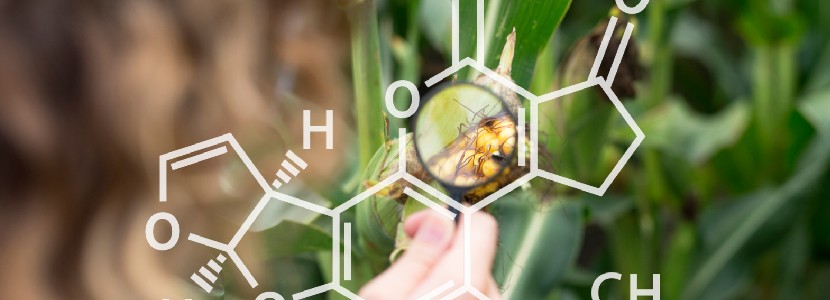Aflatoxins constitute a family of secondary metabolites produced mainly by Aspergillus flavus and Aspergillus parasiticus. Aflatoxins are known to affect important foods, including oilseeds and cereals.
Aflatoxins comprise aflatoxin B1, B2, G1, G2, M1 and M2 in which AFB1 shows increased toxicity in addition to causing immunosuppression, carcinogenicity, teratogenicity and mutagenicity (Bhat et al., 2010).
The secretion of aflatoxin AFB1 depends on abiotic factors such as:
- humidity
- temperature
- oxidative stress
- storage, etc. (Astoreca et al. , 2014).
| The toxicity of AFB1 in animals varies by age, sex and species, as well as the dose and duration of exposure to this toxin (Dhanasekaran et al. , 2011). |
- In poultry, the immune system is severely affcted by AFB1, resulting in reduced subsets of the T-cell population (Jian et al. , 2015)
Pierron et al. (2016) found that dietary exposure to AFB1 in pigs resulted in altered lymphocyte activation, a negative influence on vaccine efficacy, and a delayed cell-mediated immune response.
- Several disorders in livestock associated with aflatoxicosis have been reported including the birth of small calves, diarrhea, mastitis, respiratory problems, rectal prolapse, etc. (Applebaum et al., 1982)
The toxicity of AFB1 in dairy cows has a double importance, since it affects the anima’s performance and leads to milk contamination being of great concern for human food.
Prevention of aflatoxicosis with the use of dietary supplements
Keep up to date with our newsletters
Receive the magazine for free in digital version REGISTRATION ACCESS
YOUR ACCOUNT LOGIN Lost your password?
